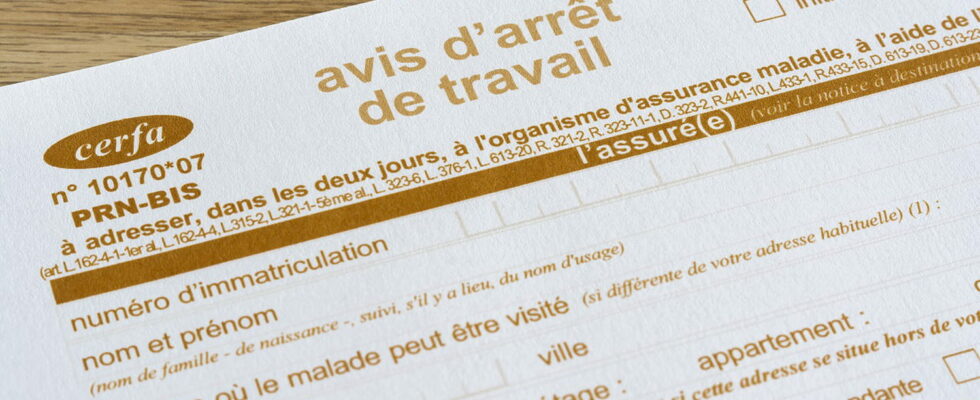Faced with the explosion of fraud and false work stoppages, health insurance will strengthen its digital arsenal. It will thus be able to count on secure cerfa with QR code, more AI and cyberenquishers.
Like any organization responsible for paying funds, health insurance is frequently the victim of attempted fraud on its services from healthcare professionals or insured. It is very simple, in five years, she recorded an increase of 50 % of the fraud detected and stopped, for a total of 628 million euros in 2024, according to figures published Thursday by health insurance in its annual report. An observation which calls to improve anti-fraud systems, in particular with regard to work stoppages.
Indeed, new methods have caused an explosion of fraud to daily allowances, which reached 42 million euros in 2024, against 17 million in 2023. “This increase is mainly explained by an increase in false work stoppages sold on social networks, with ready -to -use kits made up of false stops – often several months – and false work certificates”indicates health insurance. Faced with such figures, one wonders if this is good news, since it would mean that the body is increasingly effective in identifying and punishing fraud, or if that means that more and more acts of this kind are committed. On the side of the Health Insurance Department, we ensure that efforts pay. Also, it intends to intensify its fight against digital fraud by relying on new technologies, such as the digital ordinance and its QR code, artificial intelligenc and cyberenquiers.
Insurance: the announced end of paper work stoppages
Health insurance had already attacked fraudulent prescriptions by launching Asafo-Pharma, a secure teleservice that allows pharmacists to report false prescriptions. Since its deployment in August 2024, the tool has already collected 7,300 reports, of which three -quarters have proven to be just. An evolution carried out in January 2025 also allows automated verification by direct dispatch to the prescribing doctor.
To tackle false work stoppages, health insurance decided that from June, paper disease stops, the provenance of which could not be ensured will no longer be authorized. “We will stop accepting paper work stoppages which we cannot check the quality. From June 2025, we will only take CERFA which are secure. We have built a new form with verification systems, QR code that we know how to recognize”explains Thomas Fatôme, director general of the National Health Insurance Fund, at the microphone of RMC. It will therefore no longer be possible to scan a work stoppage and change the name or dates thanks to software.
These famous secure cerfa will have holograms, reactive photocopy and QR codes bands. They have already started to be broadcast in medical offices and hospitals, and will therefore have to be adopted by all professionals who can prescribe sickness stops by next June. Any other judgment will be deemed non -compliant. These security measures complete the promotion of the dematerialized work stoppage (E-AAT), which already represents 79 % of transmissions and which prevents identity theft.
Health insurance: strengthening of fraud control systems
However, the fraud at work stoppages represented “only” 42 million euros in 2024, out of a total of 628 million fraud detected by health insurance. Fighting against fraudulent work stoppages is therefore an excellent thing, but that will not help to counter the problem as a whole. Also, the organization intends to rely more and more on artificial intelligence. “We work with different start-ups on different models to track fraudsters. We are testing that and it’s very promising”says Thomas Fatôme.
Other measures are also planned. Thus, health insurance has strengthened by 10 % its workforce to combat fraud to reach a total of 1,600 specialized agents, in the majority of statisticians and specialized investigators with judicial police powers. They were distributed within six new interregional centers of judicial investigators (PIEJ), on the model of what is already done in Paris. In parallel, she created a unit responsible for investigating emerging fraud. In all, 60 agents with judicial police prerogatives have been recruited and trained. No more laughing!
